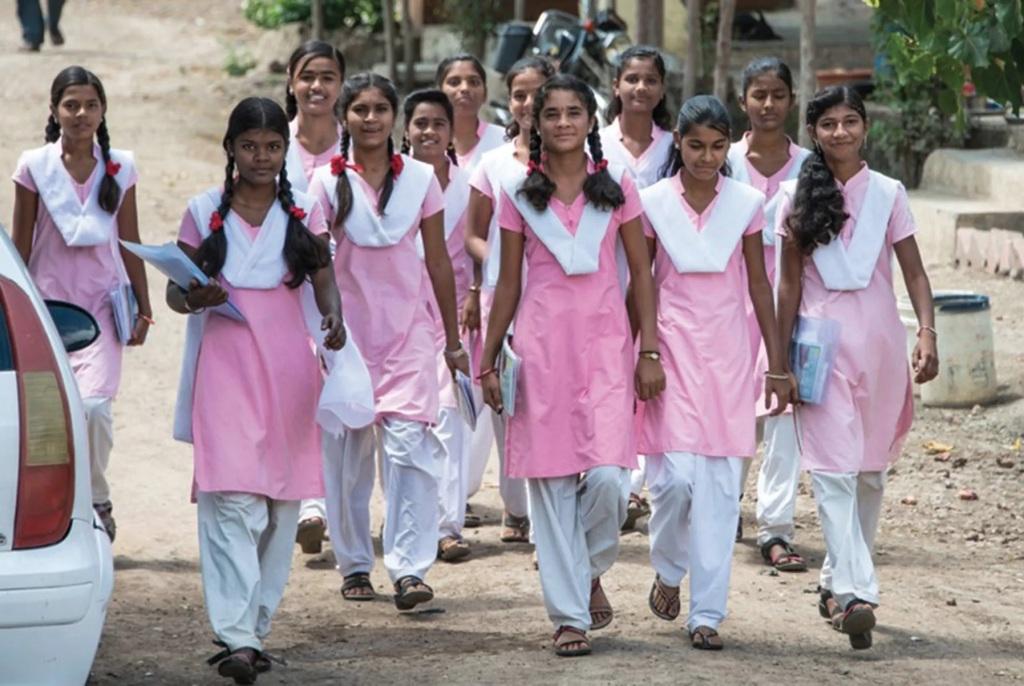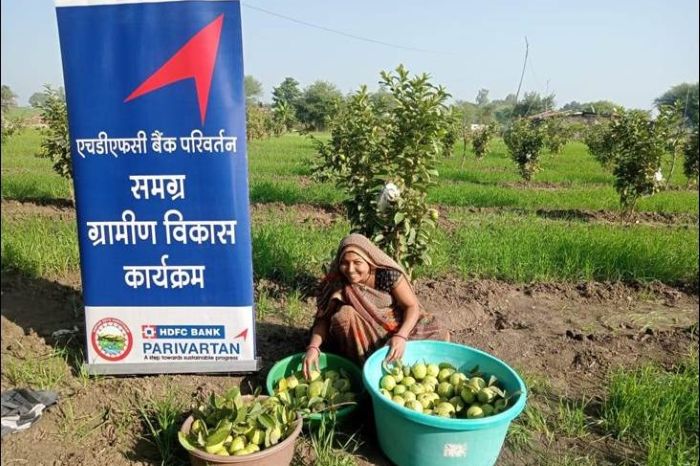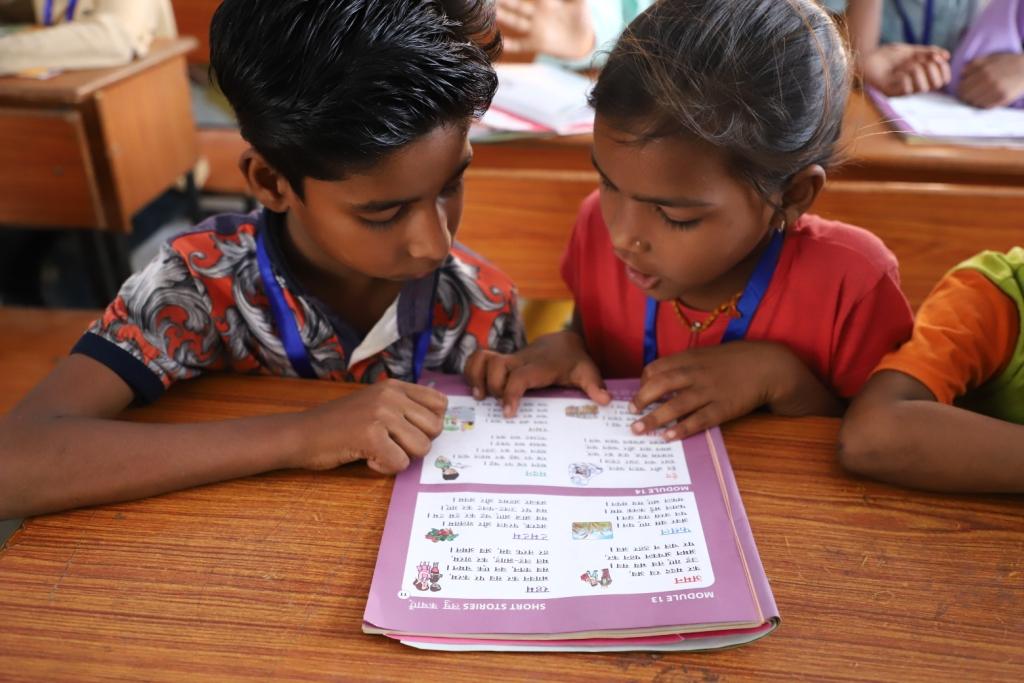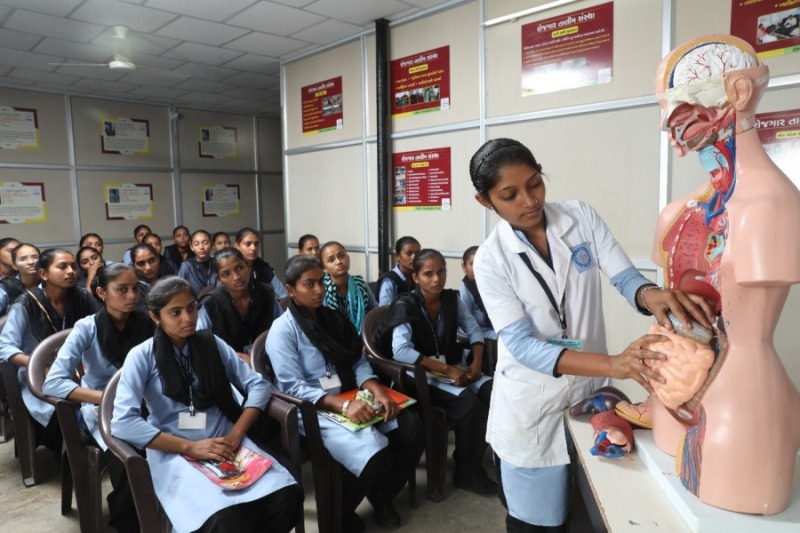Body can be imprisoned but dreams can’t! For many women inmates of Tihar jail, a training opportunity inside the jail’s wall is bringing tangible skills and a real chance at a new beginning upon their release!
The transformative training is being conducted by Pearl Academy, a leader in creative design education in India, in collaboration with Tihar jail. With its establishment of a fashion laboratory inside Tihar’s walls, Pearl Academy is not just teaching pattern making and garment construction; it is sowing the seeds of change.
The academy very recently felicitated the former inmates for successfully completing courses in pattern making and garment construction of Indian wear.
This case study not only showcases the social impact that this initiative is bringing but also underscores the potential of thoughtful collaborations between educational institutions and correctional facilities. As we explore the nuances of this initiative, we see a vivid illustration of how education can serve as a powerful catalyst for social change, providing hope and opportunities to those who need them most.
The Initiative:
By partnering with Tihar Jail, the Pearl Academy aimed to empower inmates with valuable skills and opportunities for personal growth and rehabilitation. The beneficiaries of this program are the women inmates of Tihar Jail, who are given the opportunity to learn and develop skills that can support their reintegration into society upon release.
The initiative had two objectives:
- to provide inmates with practical skills training
- to foster a sense of purpose and dignity among the inmates.
The strategies employed to achieve these objectives include providing fully equipped training laboratories, engaging experienced professionals to facilitate the training sessions, and offering career opportunities for the inmates post-training. Moreover, initial support from external partners like ONGC played a pivotal role in enhancing infrastructure and acquiring additional machinery for the initiative.
Problem Statement:
The initiative addresses the pressing social and environmental challenge of reintegrating ex-convicts into society and steering them towards a positive and sustainable future. The context lies in the difficulty faced by individuals transitioning from incarceration to freedom, as they encounter various barriers to employment, social acceptance, and personal growth. This challenge is compounded by societal stigma, lack of access to education and vocational training, and limited support systems upon release.
Solution Framework:
The academy confronted the problem by equipping ex-convicts with the necessary skills and resources to rebuild their lives with dignity and purpose.
In 2016, the former Director General of Tihar, IPS Sudhir Yadav, reached out to Bela Gupta, Professor of Fashion Design at Pearl Academy, to help the inmates learn a skill. Prof. Bela identified a course or workshop in embroidery and sewing as the most suitable approach. Dr. Sharad Mehra, President of the Creative Arts Education Society (CAES) provided the necessary infrastructure, marking the inception of the program.
A fully-equipped, state-of-the-art laboratory was set up by the Pearl Academy in Tihar’s Jail No 6 in the year 2017 to support the theoretical instruction provided by experts like Professor Bela, ensuring inmates received comprehensive training in these skills. The program's objective has evolved from mere skill acquisition to a holistic approach to rehabilitation and empowerment. Inmates receive in-depth training in various aspects of fashion design and garment assembly, led by seasoned faculty members from our institution. Equipped with a wide array of machinery and specialised tools, such as single lock-stitch machines, industrial ironing machines, knitwear machines, and fusing machines, the laboratory provides comprehensive training facilities. Committed professors from Pearl Academy conduct daily sessions from 9 am to 5 pm, ensuring inmates gain valuable hands-on experience and opportunities for skill enhancement.
Implementation Strategy:
- Genesis: In 2016, IPS Sudhir Yadav, the former Director-General of Tihar, initiated the collaboration by reaching out to Bela Gupta, Professor of Fashion Design at Pearl Academy. Recognising the potential to empower inmates through skill training, Professor Bela, in collaboration with Dr. Sharad Mehra, President of CAES, formulated the vision for the initiative.
- Resource Allocation: Dr. Sharad Mehra generously allocated resources, including five machines, two dress forms, and basic infrastructure, to kickstart the program. This support laid the foundation for a pilot trial.
- External Support: Over time, as the program gained momentum, ONGC expressed interest in supporting the project. They allocated ₹ 36 lakh from their CSR fund, contributing towards infrastructure and additional machines tailored to the unique needs of the women undergoing the course.
- Curriculum: Faculty members from Pearl Academy provided daily training sessions from 9 am to 5 pm, following a curriculum similar to that of Pearl Academy. The course, spanning three months, covered pattern making, garment construction, embroidery, printing, and tie-n-dye techniques.
- Infrastructure: The laboratory at Tihar Jail was equipped with 30 units, including basic single lock-stitch machines, industrial ironing machines, and specialised pressing machines. Additional machinery, such as photographic machines for screen printing and rotary machines, significantly enhanced training capabilities.
- Impact: Since its inception in 2017, the program has trained over 300 women inmates, empowering them with valuable skills for employment opportunities both within and beyond the prison walls. Former inmates have reported earning up to ₹20,000 upon release, demonstrating the program’s profound impact on livelihoods.
- Stakeholder Engagement: The program collaborates with NGOs to further support individuals’ rehabilitation in society, fostering partnerships to provide ongoing opportunities for former inmates to contribute productively.
Additionally, Pearl Academy continues to engage former inmates by providing projects to keep them productive and earn a livelihood. This collaborative approach, including direct customer connections and involvement in sample designing projects, reinforces a sense of inclusion and empowerment within the creative community.
The Impact!
Quantitative Metrics:
- The number of former inmates successfully employed post-release serves as a quantitative indicator of the initiative’s success. Several participants have secured employment opportunities in various sectors, earning an average monthly income of ₹7,000 to ₹8,000. Additionally, some have reported earning up to ₹20,000 upon release, indicating substantial financial empowerment. The earnings reported by former inmates post-release serve as tangible evidence of the initiative’s financial viability and sustainability.
- Over 300 women inmates have been trained since 2017, demonstrating significant reach and impact within the prison community.
Qualitative Metrics:
- Qualitative assessments of participants’ skill development and proficiency provide insights into the initiative’s educational effectiveness. Testimonials and feedback from former inmates highlight their enhanced skills in embroidery, sewing, pattern making, and garment construction, indicating positive qualitative outcomes.
- Positive testimonials and endorsements from stakeholders including faculty members, and prison authorities, reinforce the program's value and contribute to its credibility and sustainability.
- The collaborative nature of the initiative, involving partnerships with Tihar Jail authorities, CAES, ONGC, NGOs, and industry professionals, underscores its effectiveness and sustainability.
Success Stories:
Stories like those of Ada and Beena (names changed), who found solace, purpose, and newfound expertise through the program, offer qualitative evidence of its transformative power in rebuilding self-esteem and confidence.
After spending 15 months in prison, Ada found comfort and direction in her love for sewing, a passion she had cultivated since high school. By enrolling in Pearl Academy’s programs offered in the prison, she refined her abilities, focusing especially on embroidery. Despite facing initial hurdles, Ada emerged with proficiency in design, creating designer outfits, and mastering complex embroidery methods. Now, she plans to launch her own boutique, using her enhanced technical expertise and a supportive network.
Just like Ada, Beena, another former inmate spent endless hours in isolation but to bring herself out of that and bring new light into her life, she invested her time in the training program, initially using it as a distraction but ending with an enhanced skill. Despite managing household responsibilities, Beena stitches salwar kurtas at home, aiming to transition from factory work to building a future beyond domestic confines.
How Pearl Academy tackled the challenges?
|
Challenges
|
Collaborative Strategy
|
|
Resource Constraints: Initially, limited resources posed a significant challenge to the initiative’s implementation. The availability of machinery, infrastructure, and funding was essential for effective training and skill development.
|
Partnership with Dr. Sharad Mehra and CAES provided crucial initial resources, including machines and infrastructure. Additionally, the collaboration with ONGC, which allocated ₹36 lakh from its CSR fund, significantly enhanced infrastructure and training capabilities, overcoming resource constraints.
|
|
Logistical Hurdles: Operating within a prison environment presented logistical challenges, including security protocols, restricted access, etc.
|
Collaboration with Tihar Jail authorities was essential in navigating logistical hurdles. Establishing a cooperative relationship and clear communication channels with prison authorities facilitated smooth implementation despite logistical challenges.
|
|
Skill Development: Ensuring effective skill development and educational outcomes for participants, many of whom had limited prior experience or education, presented a significant challenge.
|
Engaging dedicated faculty members from Pearl Academy, who followed a structured curriculum similar to that of the academy, ensured high-quality training and skill development. The collaborative effort between faculty members and inmates fostered a supportive learning environment conducive to skill enhancement.
|
|
Reintegration Challenges: Reintegrating former inmates into society post-release posed challenges, including stigma, limited employment opportunities, and societal reintegration barriers.
|
Collaborating with NGOs and industry professionals facilitated post-release support, including job placement assistance, skill enhancement programs, and community integration initiatives. By leveraging partnerships with external stakeholders, the initiative addressed reintegration challenges and provided ongoing support for former inmates’ successful transition into society.
|
Scalability and Replication:
This project is also an inspiration for social sector stakeholders for its replication in other contexts or with other partners.
Scalability:
- This initiative can easily be adapted to fit different prisons or communities, making it scalable. In order to reach more participants, it is important to invest in training programs for staff and trainers.
Replication Strategies:
- Working closely with prison authorities, academic institutions, NGOs, and sponsors is crucial for replicating the initiative successfully. Moreover, by involving local stakeholders the initiative can receive the support it needs to succeed in new places.
Lessons Learned and Best Practices:
- Addressing the needs of inmates, from training to post-release support, is key to making the initiative work. Regular checks and feedback help the program stay effective and adapt to changes. It is vital to collaborate with different groups for tackling big social issues and make a real difference in people’s lives.
Conclusion:
Pearl Academy's initiative at Tihar Jail underscores its profound commitment to social responsibility. The initiative isn't just about programs and partnerships—it's about people. It empowers women inmates to discover their potential through education and skill-building and providing them with opportunities to grow personally and contribute positively to society. Through the collaborative efforts, the guidance of dedicated mentors, and the determination of participants, the initiative is bringing real transformation by changing people's lives.


















.jpg)



